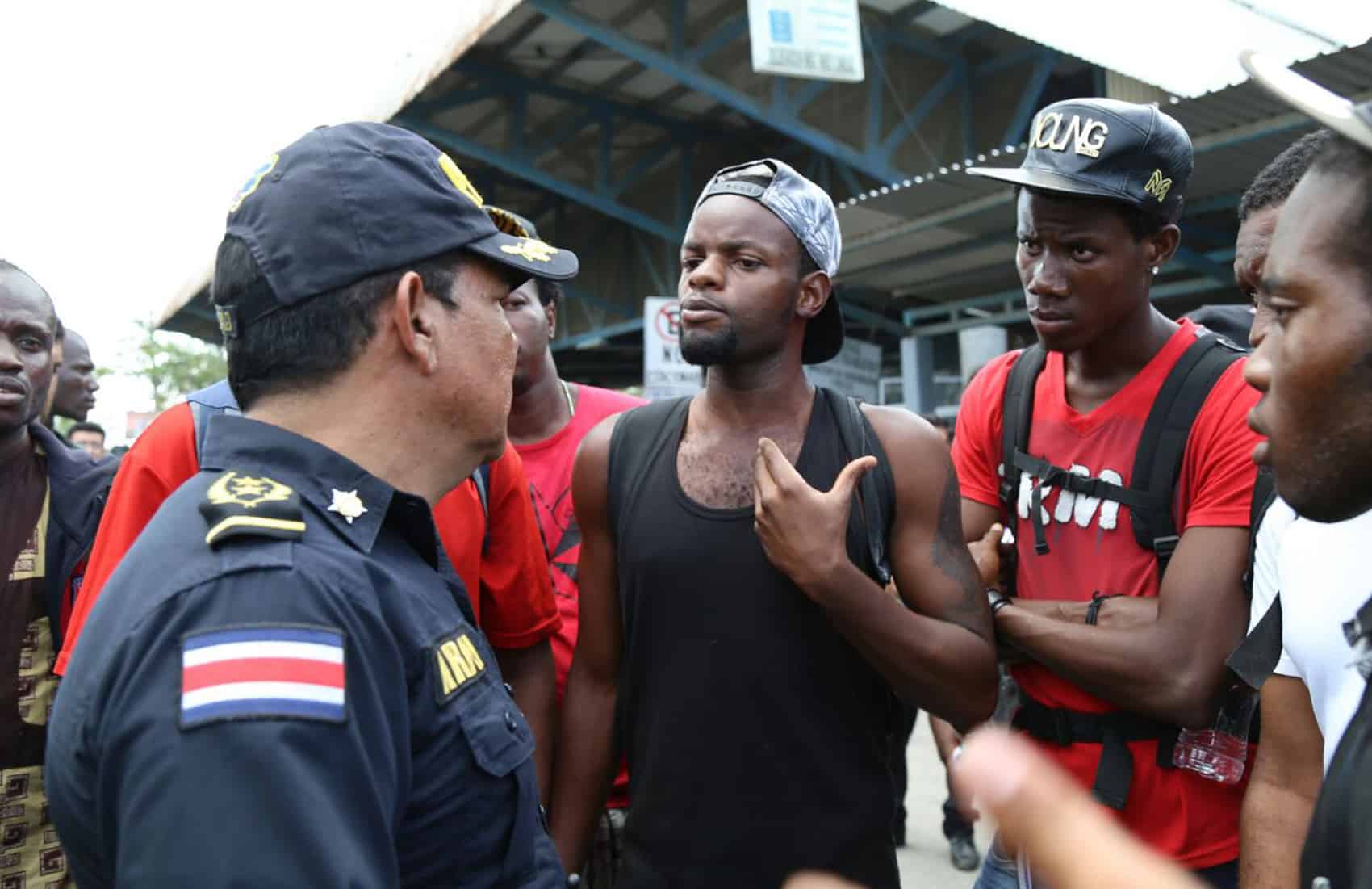More than 1,000 mostly Cuban migrants blocked traffic and forcibly crossed the border into Costa Rica Wednesday morning, demanding that Costa Rica and Nicaragua let them pass through on their way to the United States, Security Minister Gustavo Mata said during a news conference. Most of the migrants returned to Panama voluntarily, although Mata said police escorted some back.
President Luis Guillermo Solís, Security Minister Gustavo Mata, Foreign Minister Manual González and Immigration Administration Director Kattia Rodríguez met at Casa Presidencial for an emergency meeting on the topic Wednesday.
Costa Rican media outlet Colosal posted a video to Facebook from the scene at Paso Canoas showing a large crowd yelling and, at one point, surrounding a car with a cracked windshield. Several police officers are present.
One man showed his bloodied arm to the camera, but it was not clear what caused the injury. Others in the video accused police of beating them.
https://www.facebook.com/ColosalInforma/videos/800709380061050/
Mata said that an additional 150 police officers would be dispatched to reinforce the country’s southern border with Panama. The officers will stay as long as needed, Mata said. Officials from the Child Welfare Office, National Institute for Women and the Mixed Institute for Social Aid will also be at the border.
The border protest took place a day after regional leaders gathered in San José to address persistent problems on the immigration front, including the continued arrival of Cubans and migrants from Africa and Asia.
Costa Rican Foreign Minister Manuel González read an official statement Wednesday afternoon reaffirming that Costa Rica would not grant any more temporary transit visas to Cuban migrants without permission to enter the country. González repeated the government’s position that the U.S. Cuban Adjustment Act, which allows Cubans who reach the U.S. to access federal benefit and apply for residency after one year, was a “perverse incentive” that encourages human smuggling and other organized crime.
Personas que ingresen de forma irregular a Costa Rica, deben ser devueltos en el acto mismo, acorde a la ley y derechos humanos.
— Luis Guillermo Solís (@luisguillermosr) April 13, 2016
González said a hot-potato approach to Cuban and other migrants was not a lasting solution to this latest wave of illegal immigration in Central America. Despite the fact that the meeting in San José Tuesday did not produce a solution, he said that Costa Rica would remain open to continued dialogue with its neighbors to find one.
González said Costa Rica would issue a letter to U.S. President Barack Obama as early as Wednesday expressing the government’s disproval with current U.S. policy on Cuban migrants. The foreign minister said the letter would ask Obama to take executive action to limit the so-called “wet foot, dry foot” policy. He said that Costa Rica’s ambassador to the U.S. would continue to meet with members of the U.S. Congress to explain Costa Rica’s concern with current policy.
The Panamanian newspaper La Estrella reported that there are some 2,000 Cuban migrants trying to reach the United States living in four shelters in Chiriquí, Panama. Costa Rica stopped receiving Cuban migrants in December 2015.
In March, President Solís declared the successful conclusion of Costa Rica’s humanitarian mission in which the country cared for more than 7,800 migrants and helped them on their way to the U.S.-Mexico border.
This is a developing story.






